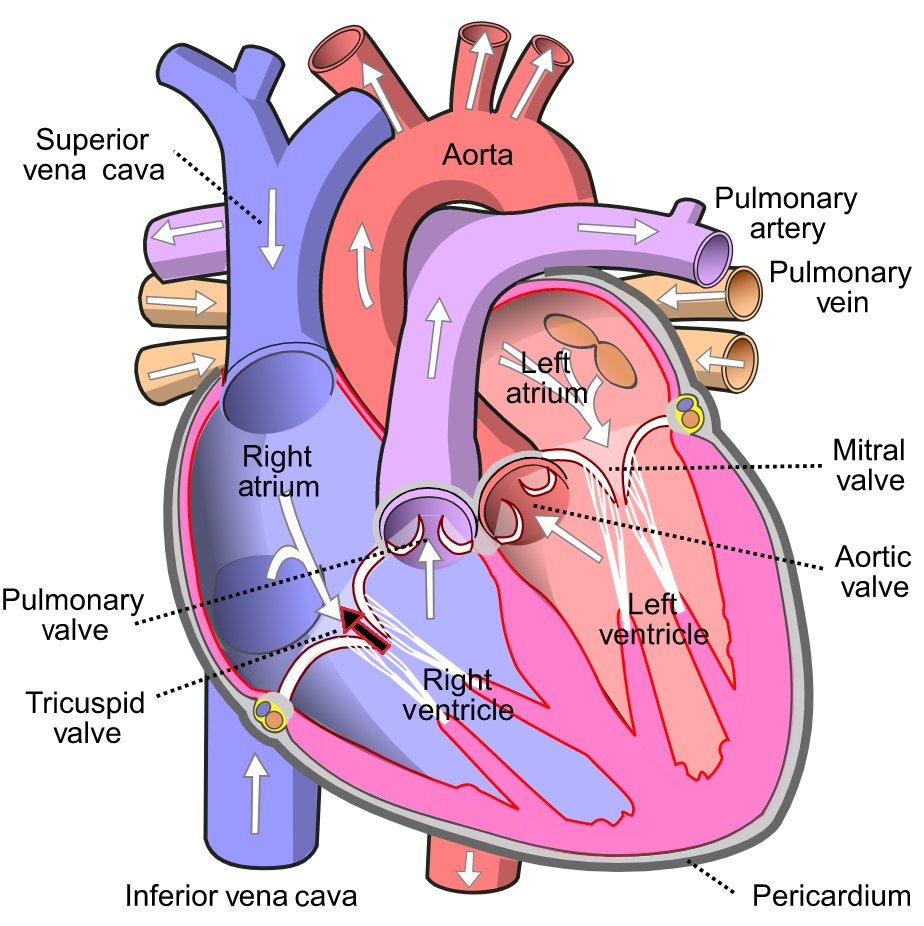Cavalier King Charles Spaniels are prone to Mitral Valve Disease (MVD) which can lead to heart failure. Unfortunately, this disease can appear in the majority of Cavaliers at some point in their lives, and as a result, is the most common cause of death, but there are steps that can be taken to keep your Cavaliers heart healthy.
Exercise is the main way to keep your Cavaliers heart healthy, along with a good diet and a healthy weight. Unfortunately, if your Cavalier is diagnosed with Mitral Valve Disease (MVD) there is no cure, but it can be managed with medication.
Mitral Valve Disease (MVD), is a terrible diagnosis for any Cavalier owner, but it is manageable and many Cavalier King Charles Spaniels live a full and active life. You have probably heard of MVD, so what exactly is it, and why does it affect Cavaliers so much?
What is the Mitral Valve, and where is it?
The Mitral Valve is located in the heart and is above the left ventricle, but below the left atrium. This valve creates a one-way system for the blood and prevents it from leaking backward.
Mitral Valve Disease causes a thickening of the valve, which prevents the valve ‘flaps’ from closing fully. This causes the blood to leak slightly and causes a heart murmur. Once this leakage starts, the heart has to work harder to pump blood around the body, and as a result, this is where the problems start to begin.

User:Wapcaplet, CC BY-SA 3.0, via Wikimedia CommonsThere are four stages of MVD, and these are A, B1, B2, and C:
- A – Cavalier King Charles Spaniels will always start at stage A, although they don’t currently have any signs of the disease, they are still susceptible to it.
- B1 – A heart murmur is present in your Cavalier, but they are not showing any symptoms of any further heart problems.
- B2 – The heart murmur is still present, and the overall size of the heart is enlarged. Medication is required at this stage, however, no symptoms are seen from your Cavalier, so regular checks by your vet are vital.
- C – Symptoms of heart failure are very apparent, and more medication is required at this stage.
Why are Cavaliers Prone to MVD?
Heart disease is common in all breeds of dogs, in fact, 1 in 10 of all dogs in the world will have a heart problem. Humans too can suffer from MVD which is classed as an old age disease.
Almost all Cavaliers have MVD, as it is a polygenic condition which means that multiple genes are affected, so all Cavaliers worldwide can be susceptible to the disease.
Mitral Valve Disorder can start at an early age in Cavaliers and can be present in more than half of all Cavaliers at the age of 5. It is very rare to have a 10-year-old Cavalier that has no signs of a heart murmur at all.
Due to irresponsible breeding, from puppy farms and breeders who are purely in it for the money, MVD will, unfortunately, stay with the breed. There are breeding guidelines to try and eliminate Mitral Valve Disorder, these include not breeding from parents until they are at least 2.5 years old and have a healthy heart, and also that their parents were heart-healthy up to at least the age of 5.
Symptoms
It is important to learn about the symptoms of MVD so that you can take action as soon as you suspect that your Cavalier may be suffering from the disease. Remember, the earlier you are able to get them onto the required medication, the better chance they have of living a longer life.
One of the main tell-tale symptoms is a cough. The cough begins because the heart can be so enlarged that it is pushing on the windpipe, or the mitral valve is letting blood flow backward, which in turn causes a fluid build-up in the lungs, and therefore makes your Cavalier cough. Not all coughs mean that your Cavalier has MVD, but it is best to get it checked out by the vet anyhow.
Other symptoms of Mitral Valve Disease can include:
- Difficulty breathing
- Not willing to exercise
- Gagging
- Fainting
- Overly lethargic
- Collapsing
- Loss of appetite
- Muscle reduction
- Swelling of the abdomen
What to do
If you have any concerns over your dogs’ health you should always go to your local veterinarian for a check-up, even if it is just to put your mind at rest.
Being told that your Cavalier has a heart murmur may sound like devastating news that you do not want to hear, but you are better off hearing it sooner rather than later. The quicker you can get your Cavalier on the required medication means the condition can be controlled.
Some of the medications that can be prescribed are:
- Inodilators – to help the heart beat more efficiently
- Diuretics – to help the fluid drain from the lungs
- ACE Inhibitors – to assist the heart to pump the blood around the body
A regular 6 monthly check-up at the vet is also recommended, but your vet will obviously inform you if this is actually required.
To help predict the onset of MVD the following procedures can be performed by your vet:
- Blood Tests
- Blood Pressure Checks
- An X-ray
- An Ultrasound
- An ECG
Can MVD be Stopped?
In the long term, it can be stopped if breeders adhere to the stipulated breeding protocol, but for our Cavaliers of today, this disease is incurable. However, keeping your Cavaliers weight in check, and regular exercise involving multiple short walks can keep their hearts healthier for longer.
Try not to take your Cavalier on large extensive walks, or to run for long periods of time, as this can cause undue pressure on the heart.
A healthy heart is a happy Cavalier, let’s keep all our Cavaliers for as long as we can.


4 thoughts on “How to Keep my Cavaliers Heart Healthy”